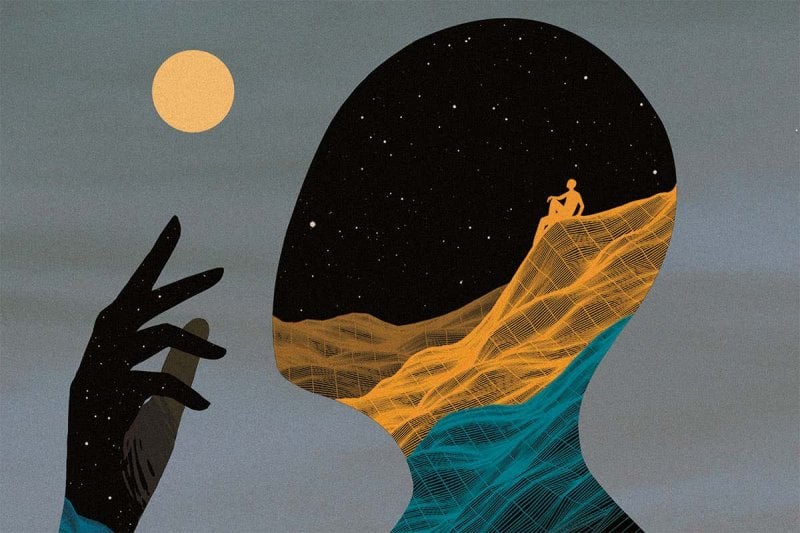
Joel Frohlich
Genetic Literacy report
Originally published 18 Sept 20
Here are two excerpts:
Just as life stumped biologists 100 years ago, consciousness stumps neuroscientists today. It’s far from obvious why some brain regions are essential for consciousness and others are not. So Tononi’s approach instead considers the essential features of a conscious experience. When we have an experience, what defines it? First, each conscious experience is specific. Your experience of the colour blue is what it is, in part, because blue is not yellow. If you had never seen any colour other than blue, you would most likely have no concept or experience of colour. Likewise, if all food tasted exactly the same, taste experiences would have no meaning, and vanish. This requirement that each conscious experience must be specific is known as differentiation.
But, at the same time, consciousness is integrated. This means that, although objects in consciousness have different qualities, we never experience each quality separately. When you see a basketball whiz towards you, its colour, shape and motion are bound together into a coherent whole. During a game, you’re never aware of the ball’s orange colour independently of its round shape or its fast motion. By the same token, you don’t have separate experiences of your right and your left visual fields – they are interdependent as a whole visual scene.
Tononi identified differentiation and integration as two essential features of consciousness. And so, just as the essential features of life might lead a scientist to infer the existence of DNA, the essential features of consciousness led Tononi to infer the physical properties of a conscious system.
(cut)
Consciousness might be the last frontier of science. If IIT continues to guide us in the right direction, we’ll develop better methods of diagnosing disorders of consciousness. One day, we might even be able to turn to artificial intelligences – potential minds unlike our own – and assess whether or not they are conscious. This isn’t science fiction: many serious thinkers – including the late physicist Stephen Hawking, the technology entrepreneur Elon Musk, the computer scientist Stuart Russell at the University of California, Berkeley and the philosopher Nick Bostrom at the Future of Humanity Institute in Oxford – take recent advances in AI seriously, and are deeply concerned about the existential risk that could be posed by human- or superhuman-level AI in the future. When is unplugging an AI ethical? Whoever pulls the plug on the super AI of coming decades will want to know, however urgent their actions, whether there truly is an artificial mind slipping into darkness or just a complicated digital computer making sounds that mimic fear.